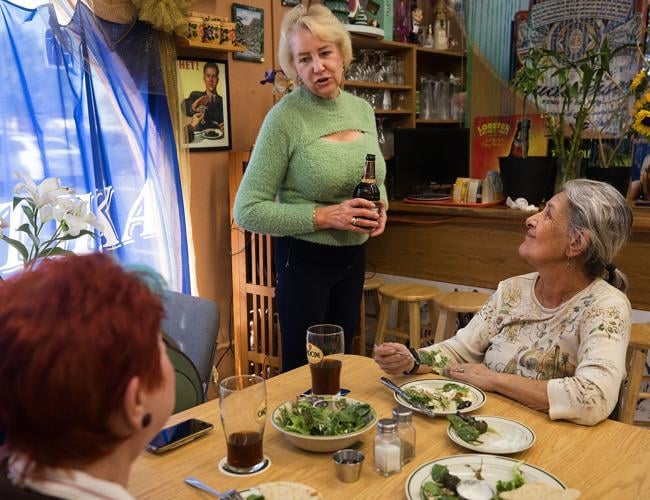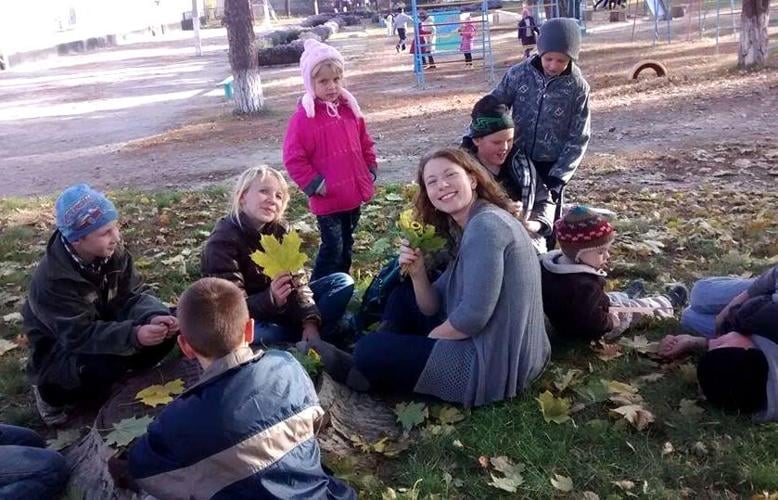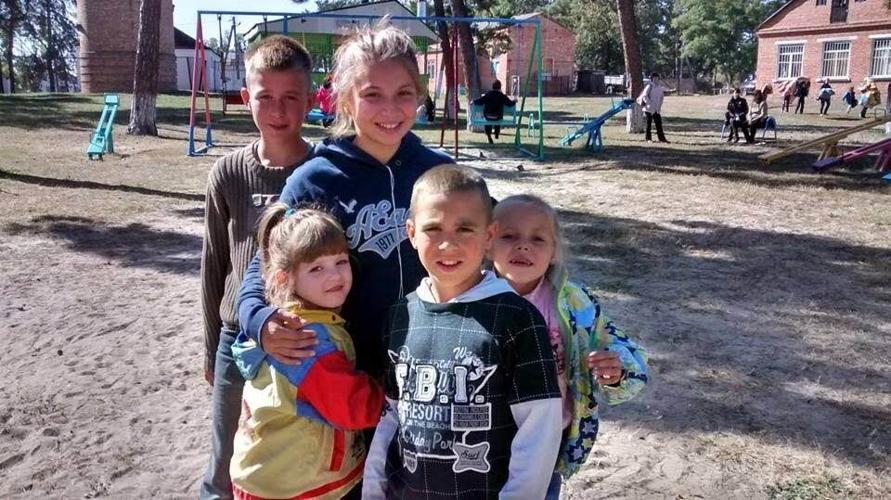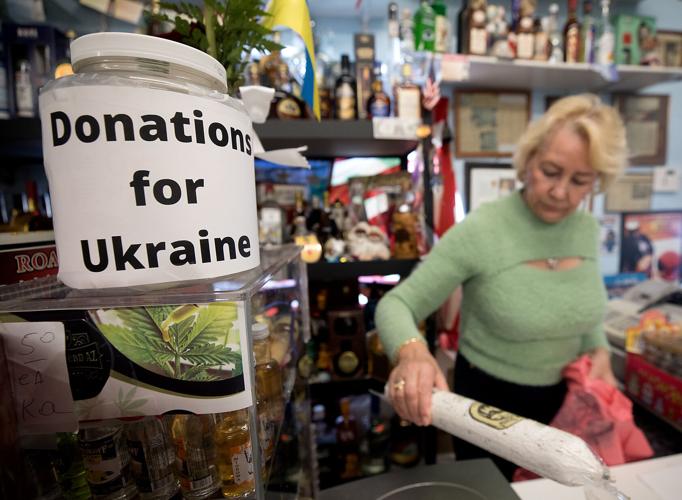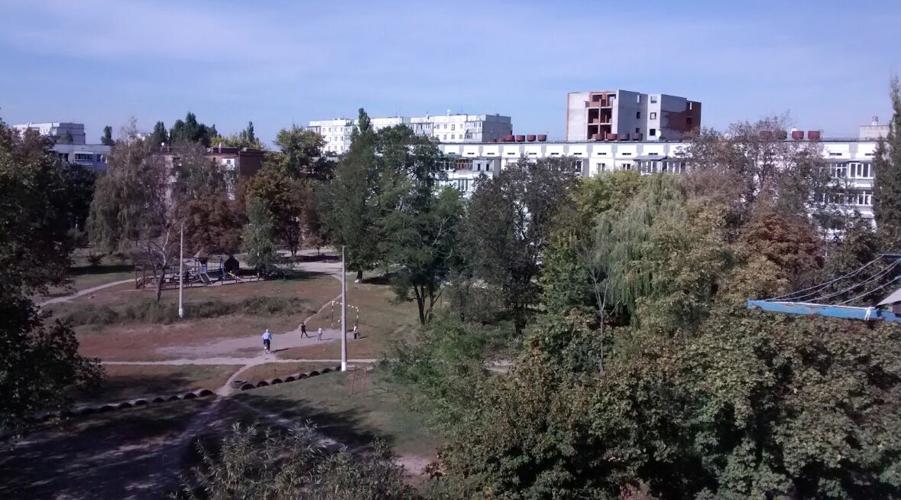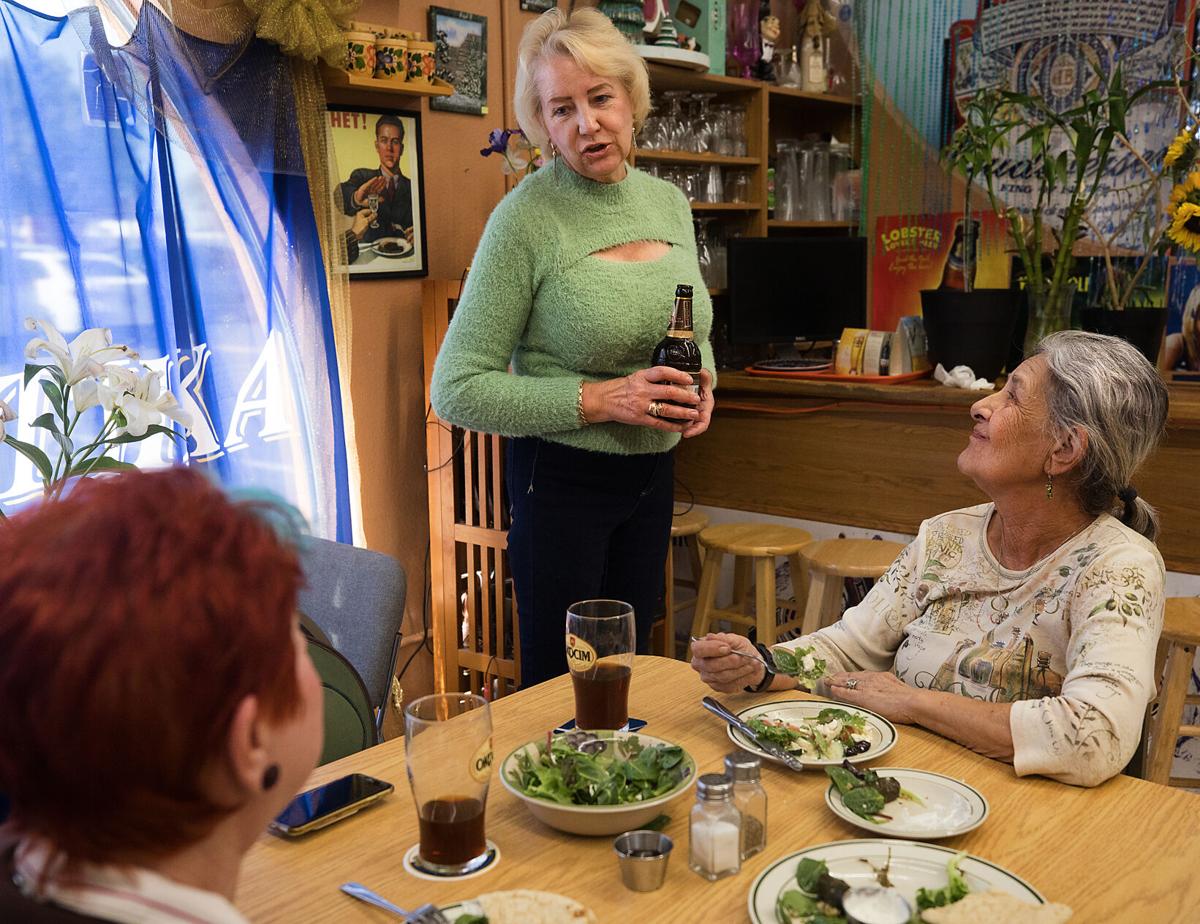As Russian troops advance in Ukraine, bombing buildings and causing havoc, Tucsonans with relatives and friends there are nervous and worried for their loved ones.
The realities of war are not easy, causing loss of appetite and sleep, said Irena Chausovskaya, 33, whose family came to Tucson 30 years ago from Kyiv, the capital of Ukraine. Irena was age 2 and came with her parents, siblings and grandparents as Ukrainian Jewish refugees and received aid from Jewish Family & Children’s Services refugee resettlement programs.
Tucson nurse Bonnie Ledford worries about friends she made in 2014 when she lived in Okhtyrka for two months when she was adopting her daughter, Anya Ledford, from an orphanage there.
Chausovskaya said she was working with a group of former military soldiers to try and get her relatives out of Kyiv, but they do not want to leave. “They rather stay and die defending our country,” she said during a break from her shift at the family’s restaurant, European Market & Deli, in Tucson’s midtown.
The Chausovskaya family has about 40 relatives in Ukraine, some living in Kyiv and Odessa, and others throughout the country. “The men are volunteering to fight and will be trained by groups of former soldiers. They are making Molotov cocktails right now,” said Chausovskaya of the poor man’s grenade in an interview Monday.
“Ukrainians have so much heart and soul,” said Chausovskaya. “They are salt of the earth people. What is going on now with the Russian invasion is hard to understand because a lot of Ukrainian women are married to Russian men,” she said.
“I think people are hopeful about a quick ending to the war. They are hopeful for the best, but are prepared for the worst,” she said.

Olga Chausovskaya set out a jar to collect donations by the cash register at European Market & Deli, 4500 E. Speedway. Chausovskaya says she has family in Ukraine who are staying to fight against the Russians, even though they do not have any firearms.
“Right now all our cousins are staying in their basements with their small children,” said Olga Chausovskaya, Irena’s mother, who also took a break from her shift at the market and deli to share her thoughts about her relatives and the war. “No one is sleeping because it is so cold. It is below 15 degrees and snowing,” she said of the weather in Kyiv several days ago.
“Who is there to protect the families?” she asked. “Nobody,” she answered. “They do not have guns. You can’t do anything with knives.”
Yet, one 17-year-old cousin did say, “if I have to I will take a knife and fight,” Irena recalled.
Olga said her relatives can hear bomb blasts and shooting in the background. “So many big apartments have been destroyed. Russian troops are around the city (Kyiv),” she said, explaining that before the war her relatives had jobs in stores, one was a bookkeeper, another a high school principal, and another was a delivery driver of electronics equipment.
Now, their normal work and daily routines have ended. “There is nothing. They have little food. They go for water outside,” said Olga.
A cousin died Friday in his fifth-floor story apartment and he was not taken out of his home until days later to get cremated, said Olga. “He was a retired police captain. He was 71 and had diabetes and heart problems. He was so stressed,” said Olga, explaining that civilians were getting prepared for war and were not able to attend to her deceased cousin. A private company finally moved him from the apartment to a crematorium.
“I am glad my grandfather didn’t live long enough to see this,” said Irena of the Russian invasion of Ukraine. Her grandfather, Mikhail Rabinovich, 93, recently died of complications from diabetes.
Bonnie Ledford is another Tucsonan who has friends in the Ukraine, where she lived while adopting her daughter from an orphanage in Okhtyrka, which is northeast of Kyiv and closer to the Russian border. “The Russian military is attacking Okhtyrka now and has been for the last couple of days,” she said Monday. “Friends have left and are living in the countryside for protection from the bombings of apartment buildings. Orphanages are also being evacuated,” Ledford said.

Bonnie Ledford, smiling in gray sweater, at Anya’s orphanage in Okhtyrka, Ukraine, in 2014.

Anya Ledford, center, then age 14, at the orphanage in Okhtyrka, Ukraine, in 2014.
“I know a lot of people have stayed for the war to defend their country. Other people have traveled to Poland, but you have to have money to do that. Most people do not have the money to get to Poland unless they are wealthy,” she said, adding that the Russian government has cyber attacked banks, making it difficult for people to withdraw funds from ATMs.
“Ukrainians are independent, fierce people. Their country is not an extension of Russia. They do share the Russian language when it was the Soviet Union, but they are an independent nation now since 1991. Ukrainian is their language. In 2014, Russia wanted Ukraine back and tried to take it over, but the people said no,” said Ledford.
“It makes me angry that this is happening,” she said. “The world has seen it coming and Ukraine asked to be a part of NATO ..., but NATO has not accepted its membership,” which would have alliances protecting Ukraine.
“What is happening now is horrifying,” Ledford said.

Apartment building in Okhtyrka, Ukraine, where Bonnie Ledford lived in 2014.


